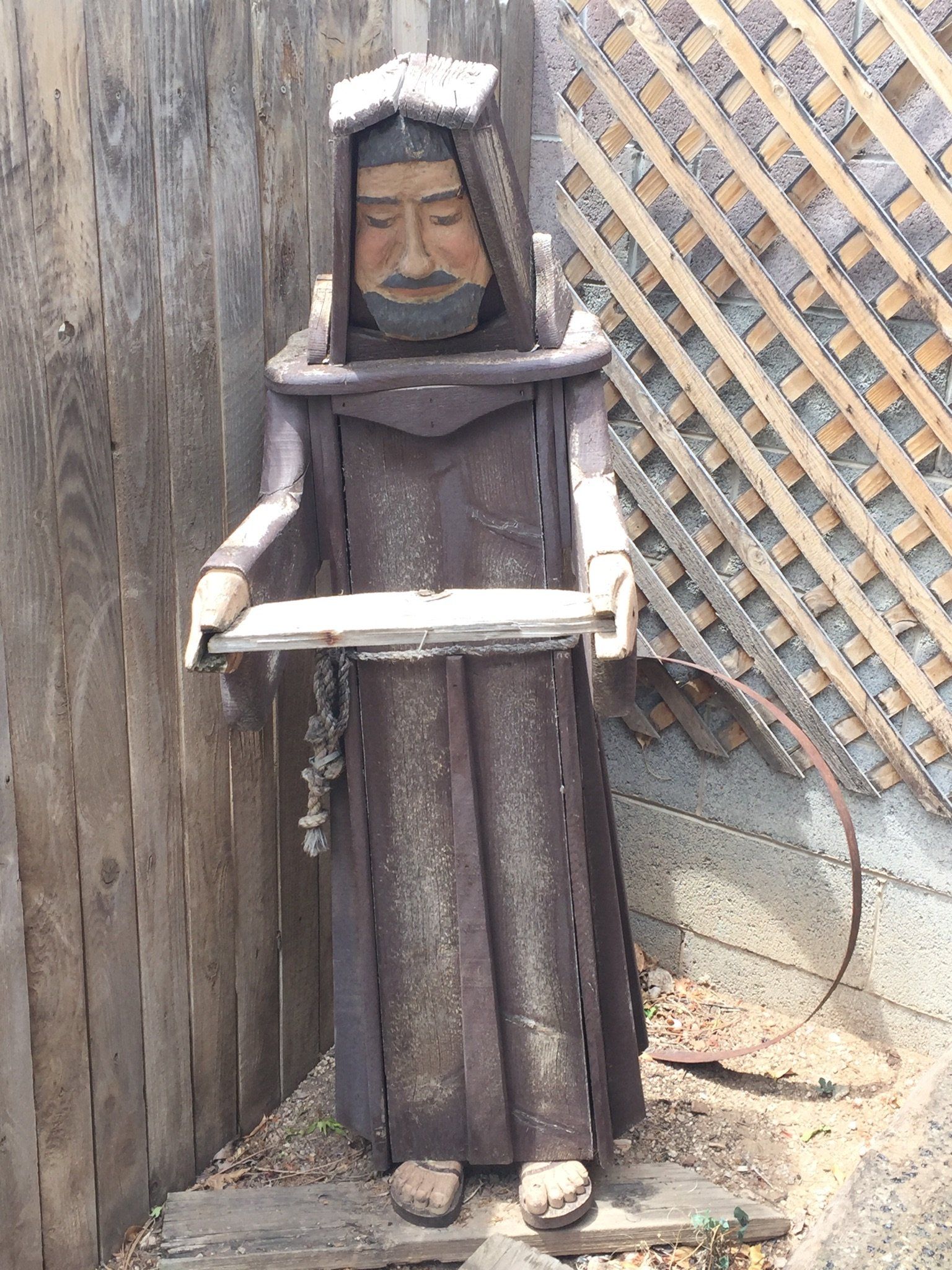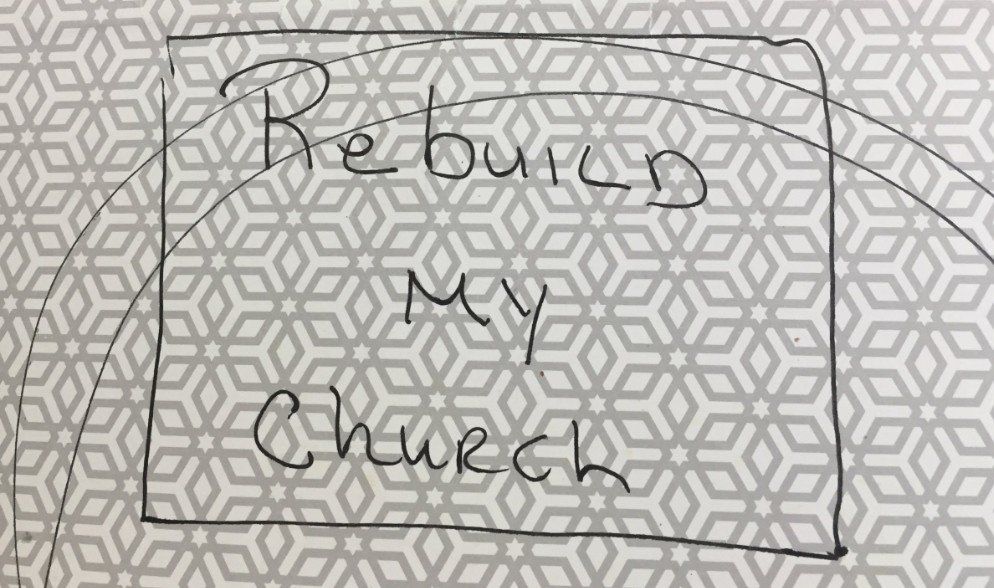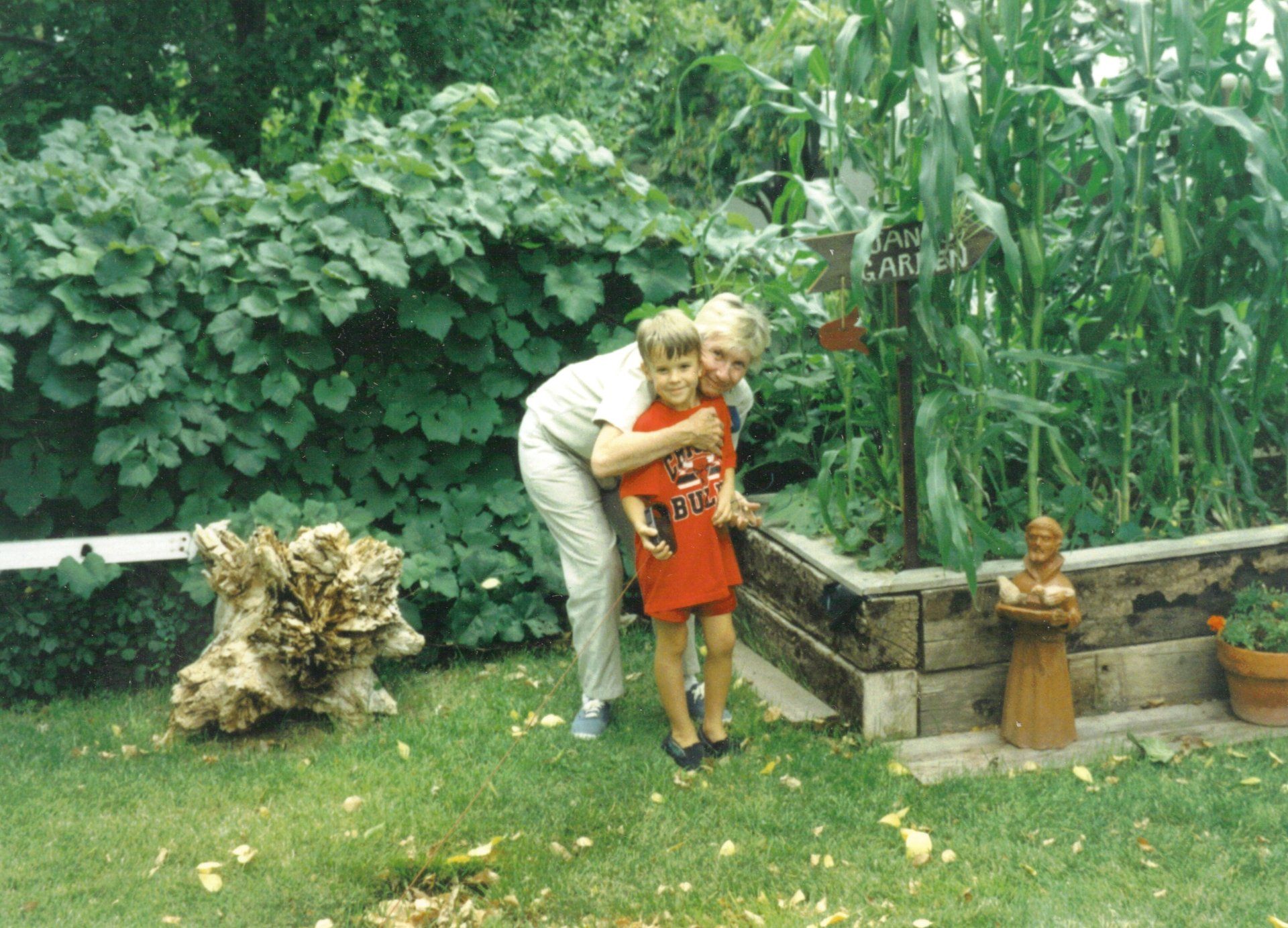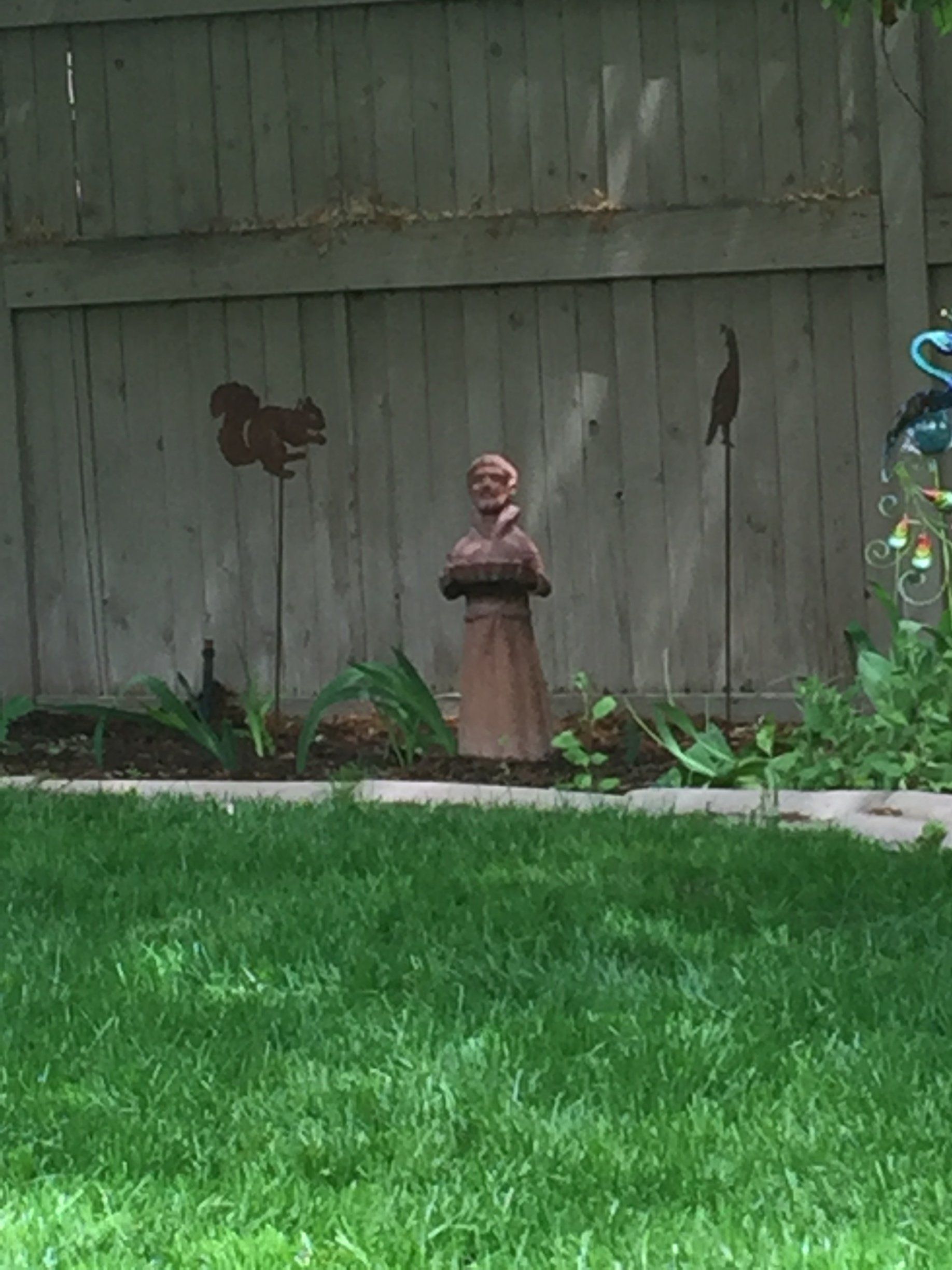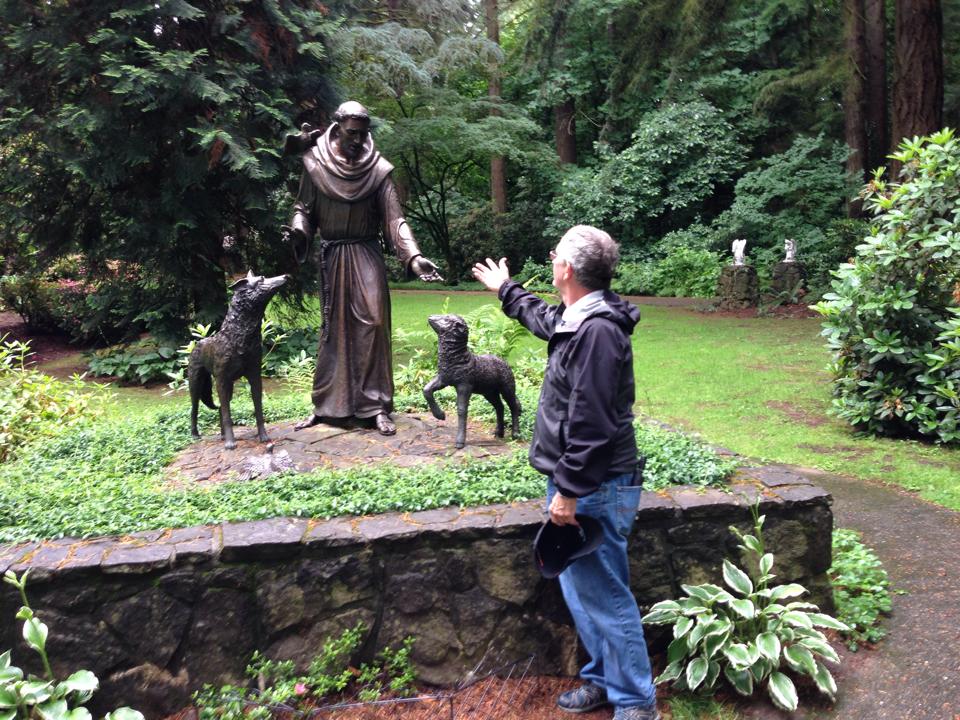St. Francis
Why St. Francis Is My Favorite Saint - Besides You
St. Francis is my favorite saint. There, I said it.
After spending time in Italy in 2013, I have become more and more interested in Catholicism. Though I am far from well-versed in this faith tradition I find Catholicism, with its centuries-long traditions, rituals, and spiritual practices, endlessly enriching. It complements, deepens, and adds to my own Protestant heritage.
United Methodists, of which I am a lifelong one, do not relate to saints in the same manner Catholics do.
“United Methodists call people ‘saints’ because they exemplified the Christian life. In this sense, every Christian can be considered a saint.
John Wesley believed we have much to learn from the saints, but he did not encourage anyone to worship them.” (From “Do United Methodists Believe in Saints?”, http://bit.ly/2L4LF13 )
So in that sense, my favorite saints are also everyday people - like my wife, son, and daughter, caregivers and peacemakers everywhere, and, actually every person with love and compassion in their heart, Christian or not.
But that’s me. I tend to make up words or redefine them, as needed.
(I’ve been called a "gadfly" , in the same sense as Socrates. The Athenians, of course, sentenced Socrates to death…)
If, however, we are talking about the officially named “saints” canonized by the Catholic Church , my favorite is St. Francis, and that is because his story and his example have made such an impression on me. But there are so many other saints who will make you gasp with how they have stepped into their faith with both feet. Most mornings I read a little blog which features one of the saints. With rare exceptions these are flawed people, who nonetheless sacrificed mightily – often being subjected to torture or other torments – to remain steadfastly committed to their faith and to what they perceived to be their calling.
-I would crack the first time The Inquisitor said the word steak, much less burning at a stake-
These folks, whether one believes exactly as they do, are
so admirable that they are rightly revered.
I also spend a few minutes most mornings reading posts from The Christian History Institute , which has a “this day in history” section. There are always events listed in which some Christian, who may or may not be a “saint” or a Catholic or well-known to most of us, makes an unfathomable sacrifice for her or his faith. This self-sacrifice is found of course in all faith traditions and in many other places. Admirable people have gone before us.
Many know the story of Francis of Assisi, who gave up all his possessions and lived the simple and humble life of a mendicant. His calling was made clear when he received a message from God to “Rebuild My church”. I wrote that phrase on the inside cover of my journal, not because I think God spoke to me personally, but because I think I should be supporting spiritual formation efforts in my own church.
Mom and Dad had a big wooden statute of the saint and they also had a little statue as well (which now sits in my back yard), and other smaller wooden statues of him. I wasn’t interested enough at the time, sadly, to ask them why St. Francis appealed to them so much, and I think that connection is lost in our family history. Over the last few years, however, the life of this man has appealed to me so much and I feel those seeds were planted by my folks.
Most importantly, many of St. Francis’ strengths have been many of my weaknesses. His humility, the way he gave away what he owned and his overall disregard for recognition and material possessions, his lack of selfishness, his dedication to every living thing, to all of nature and the created world, his simplicity, his honesty, all without regard to his own needs, have never been my own virtues. He is the patron saint of animals, the environment, and Cub Scouts, among others. To put it bluntly, I want to be more like him and have a long, never-ending way to go.
Secondly, his life was centered on what Father Richard Rohr has called "alternative orthodoxy" , that is, focusing more on “right practice” than “merely believing the right words”. Francis didn’t just say what he believed, he lived it. He personified virtues, he didn’t just spout them. He actually stepped forth in faith. You can’t give away all your possession and depend on strangers for food each day without faith.
As I reconsidered Christianity, actually all religion, post-my-2013-stay-in-Italy, the biggest problem I had was to really try to understand and work through belief systems. With different religions claiming they had “the truth”, the right doctrines and only true dogma – with whole denominations sometimes divided just based on how they interpreted terms or picked their favorite verses just didn't work for me. That was just too hard for this gadfly to put his arms around.
I also struggled with how easy it was to see that believing sometimes provided an excuse for not following what I would call Christian virtues of love, compassion, forgiveness - you know the rest - all without the desire to "imitate" Christ at all, but rather to force compliance (did I mention the Inquisitor earlier...) or to gain power or influence. This gadfly had a very, very hard time with that.
But then came Francis, and others like him, who I discovered lived their lives not worried about how a word or a passage was defined and with no interest in forcing anyone to do anything, but who embodied love and sacrifice and humility each day and in each moment. That resonated with me, and opened a door I could step through.
That is why I kiss the little St. Francis medal I wear around my neck each morning. To remind me of the importance of humility, to let go of worry about fame or fortune or security or success, to “do” more and to “say” less, and to be grateful for all the gifts that surround me every moment of every day.
Some days I can follow the example of St. Francis for more than a few minutes, but often i forget it before I get out the front door. Having Father Frank* around reminds me to always give it a go.
*Technically, he is not "Father" Frank because he was never ordained. He is really "Brother" Francis, but my Dad called him Father Frank so that is how I fondly remember him.
References:
Richard Rohr, Alternative Orthodoxy , http://bit.ly/2JgA020
Richard Rohr (2014), Eager to Love: The Alternative Way of St. Francis of Assisi . Franciscan Media.
To receive all our Profound Living posts, please subscribe (it won’t cost you anything but time to read): https://www.profoundliving.live/
Also, please consider following the Profound Living Facebook page at: http://bit.ly/2Lv44W6
Also, please share this essay with others who might find it beneficial.
In a time when our planet needs all the love it can get, just to have humanity and all that lives survive,
I reread my favorite of St. Francis' writings:
The Canticle of Brother Sun
~St. Francis of Assisi
Most High Omnipotent Good Lord,
yours are the praises, the glory, the honor, and all blessing.
To you alone, Most High, do they belong,
and no one is worthy to mention your name.
Praise be to you my Lord, with all your creatures,
especially Lord Brother Sun,
who is the day and through whom you enlighten us,
And he is most beautiful and shining with great splendor,
and bears likeness of you, Most High.
Praise be to you, my Lord, through Sister Moon and the stars,
in heaven you formed them, shining and precious and beautiful.
Praise be to you, my Lord, through Brother Wind,
and through air, both cloudy and clear, and all weather,
through which you give sustenance to your creatures.
Praise be to you, my Lord, through Sister Water,
she is very useful and humble and precious and chaste.
Praise be to you my Lord, through Brother Fire,
through whom you enlighten the night,
and he is beautiful and joyful and robust and strong.
Praise be to you, my Lord, through our Sister Mother Earth,
who sustains and rules us,
and produces different fruits with colored flowers and herbs.
Praise be to you, my Lord, through those who give pardon for your love,
and who bear infirmity and tribulation.
Blessed are those who endure in peace,
they will be crowned by you, Most High.
Praise be to you, my Lord, through our Sister Bodily Death,
from whom no living person escapes.
woe to those who die in mortal sin;
blessed are those who find themselves in your most holy will,
for the second death will not do them evil.
Praise and blessing to you, my Lord,
and thanks and service with great humility.
~St. Francis of Assisi, as found in McGinn, Essential Writings of the Christian Mysticism, p. 291

